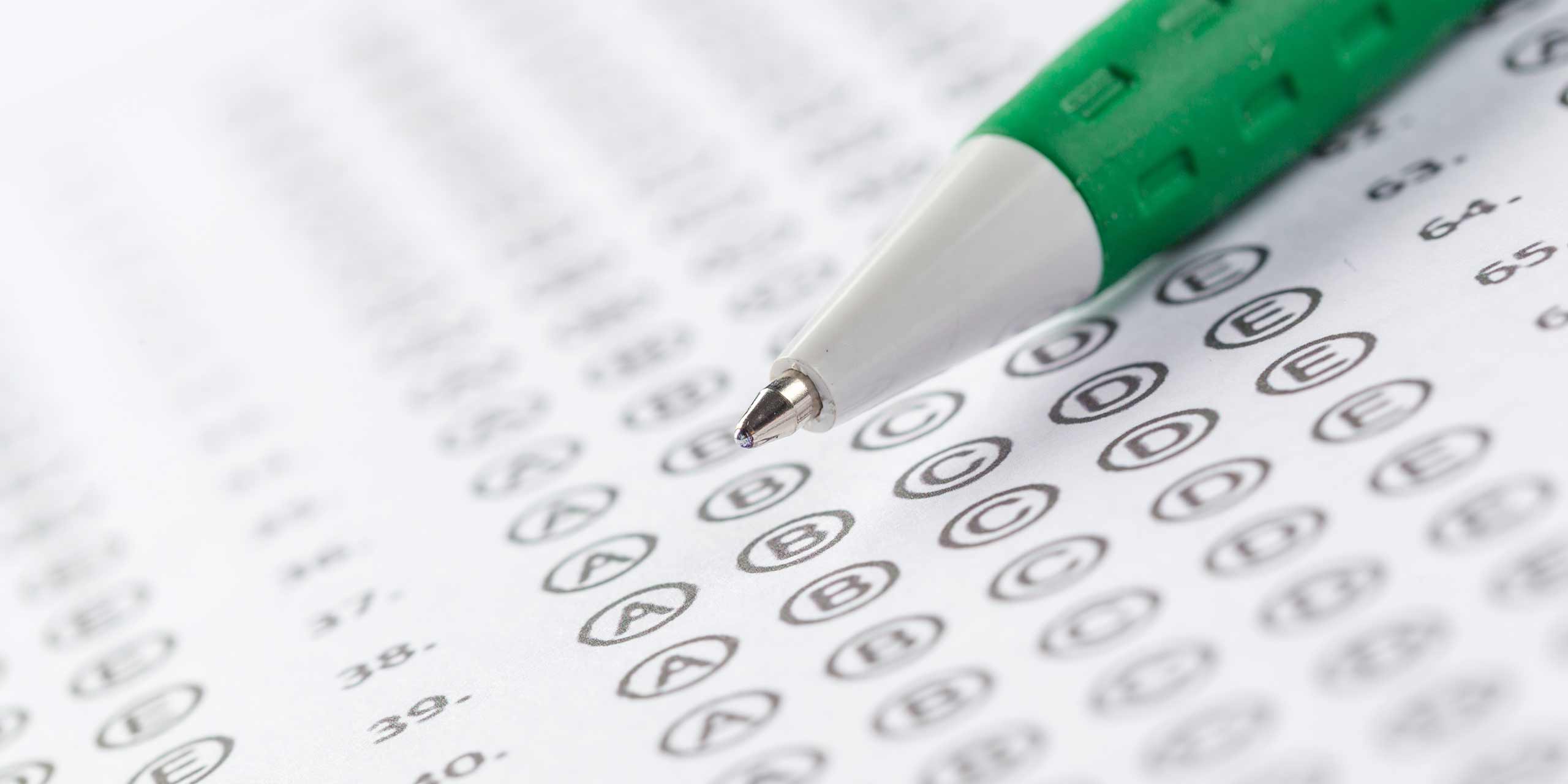Types of Assessment
Assessments can cause stress for multiple reasons, but having variety can be very beneficial for students. The four types of assessment are selected response and short answer, extended written response, performance assessment, and personal communication.
 The selected response and short answer option can be helpful and less anxiety-inducing because it gives students multiple choices to choose from. Even if students don't know the answer to the question, they still have the possibility of checking it right by just guessing. However, sometimes these selected response questions can be difficult for students because they make them second guess their knowledge. For example, if two answers are similar, it might be difficult to differentiate between which one is correct.
The selected response and short answer option can be helpful and less anxiety-inducing because it gives students multiple choices to choose from. Even if students don't know the answer to the question, they still have the possibility of checking it right by just guessing. However, sometimes these selected response questions can be difficult for students because they make them second guess their knowledge. For example, if two answers are similar, it might be difficult to differentiate between which one is correct.  Performance assessments can be great because a lot of times, teachers are assessing the whole picture. If teachers are observing a student's work, they can often see much more than just the product; they can see the work that was put in and the learning process. This gives an opportunity for students to show their gifts that might not be highlighted in just a hand written test. However, students will performance anxiety and who struggle with creativity might have a very difficult time with this type of assessment.
Performance assessments can be great because a lot of times, teachers are assessing the whole picture. If teachers are observing a student's work, they can often see much more than just the product; they can see the work that was put in and the learning process. This gives an opportunity for students to show their gifts that might not be highlighted in just a hand written test. However, students will performance anxiety and who struggle with creativity might have a very difficult time with this type of assessment.  Personal communication is beneficial in the same way that performance assessments are. Through conversation, students can share their thought process and explain their reasonings behind answers, actions, assignments, etc. This gives students a lot more freedom to express and process their answers, and gives teachers a chance to really understand their students. A con is that students who have social anxiety or trouble expressing their thoughts can struggle with this form of assessment.
Personal communication is beneficial in the same way that performance assessments are. Through conversation, students can share their thought process and explain their reasonings behind answers, actions, assignments, etc. This gives students a lot more freedom to express and process their answers, and gives teachers a chance to really understand their students. A con is that students who have social anxiety or trouble expressing their thoughts can struggle with this form of assessment.
When writing my lesson plan, I want to differentiate my assessment style. I think I want to use multiple types of assessment to give students the chance to show their gifts.
Comments
Post a Comment